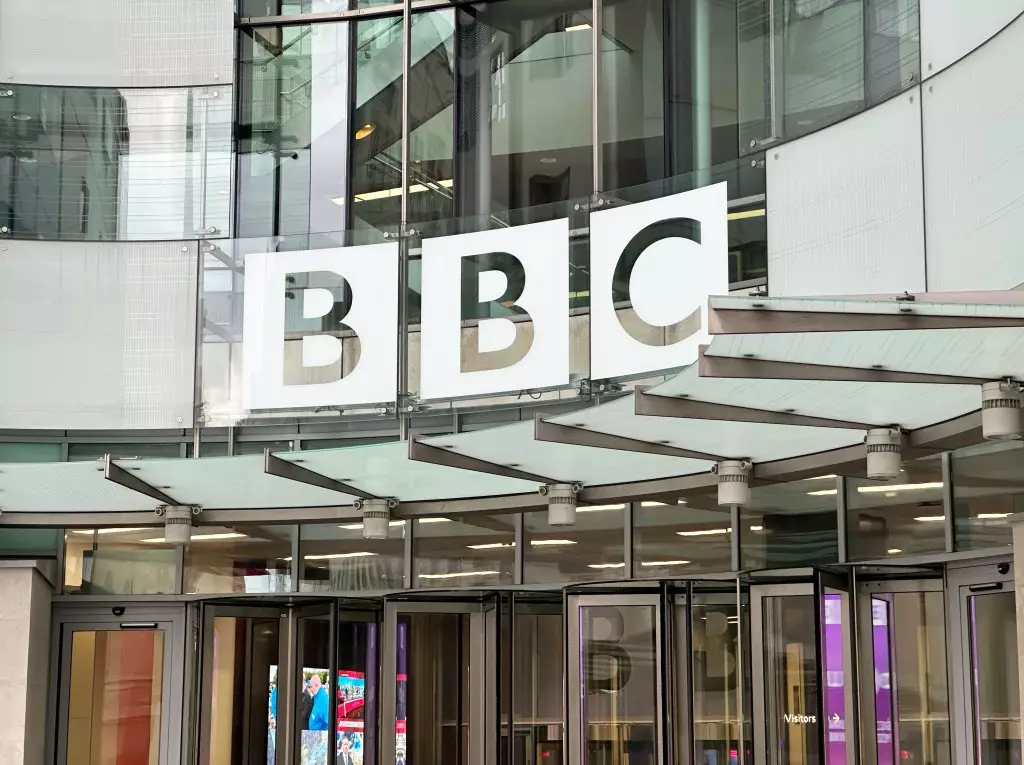Recent findings from an internal survey conducted by the BBC have illuminated a deeply troubling reality—staff members are losing faith in the organization’s ability to effectively manage bullying and harassment complaints. This revelation, highlighted in internal communications from the corporation’s news leaders, sends alarm bells ringing about the corporate culture at an institution long revered for its values of integrity and impartiality.
The emails, penned by Deborah Turness and Kate Phillips, have unequivocally raised red flags regarding the confidence levels among employees in the BBC’s ability to address serious workplace issues. Phillips refers to a “really concerning” 6% drop in the confidence of staff that bullying or harassment reports will be handled properly, while Turness confirms that only 48% believe the corporation responds to such allegations appropriately. One can’t help but ask: how did a once-thought-reputable institution find itself here?
Numbers Tell a Grim Tale
The survey details showcased a pervasive disquiet within the organization. While it may seem that the BBC has mechanisms in place to deal with misconduct—such as a bullying and harassment helpline or a counseling service—the efficacy of these resources appears to be in question. With only 58% of employees believing their concerns will be addressed satisfactorily, the numbers reveal a disconnect between policy and perception. Turning to the figures that highlight the aftermath of allegations, the figures also show an unsettling trend: in the past three years, out of 39 upheld complaints of bullying and harassment, merely 13 led to disciplinary action, with just a single employee facing dismissal. This raises a poignant inquiry: does the BBC truly embody its own proclaimed ethos of zero tolerance for misconduct?
Cultural Review: A Long-Awaited Response?
Set against the backdrop of a high-profile workplace culture review prompted by recent events, including the guilty plea of former BBC News anchor Huw Edwards, the stakes have never been higher. The review’s impending publication promises to serve as a litmus test for the organization—a chance for the BBC to demonstrate genuine accountability and provide tangible solutions to the issues at hand. Even as Turness has spoken of the need for improvement, one cannot escape the fundamental question that looms: will the forthcoming changes be enough to restore trust among a demoralized workforce?
As chair Samir Shah noted, this is an “important moment” for the BBC. However, the question that needs addressing is whether this moment will lead to meaningful action or simply become another chapter in a long saga of unfulfilled promises. The culture of fear and silence surrounding harassment claims erodes the very foundation of trust and collaboration that is essential for a productive workplace.
Leadership Accountability: A Critical Component
Against a backdrop of ongoing allegations against senior figures within the organization, the leadership at the BBC must step up or risk further disillusionment among its employees. For instance, Richard Frediani, who was recently granted additional power despite facing bullying allegations, poses questions about the ethical integrity of the leadership. How can employees trust a system that apparently prioritizes power dynamics over propriety?
What is notably absent in the current discourse is a firm commitment from leadership to be held accountable for past oversights. Director General Tim Davie has indicated a desire for actionable recommendations from Change Associates, the firm tasked with the workplace review. Yet, substantial change necessitates a reevaluation of existing power structures and a commitment to ensuring that consequences are effectively enforced for those who violate workplace norms.
Reinstating Trust: A Long Road Ahead
It’s clear that restoring confidence among BBC employees will be an arduous journey marked by transparency, accountability, and sustained efforts to foster a culture of safety. Merely acknowledging the issue is insufficient; substantial and proactive measures will need to be implemented. Providing walking resources and establishing robust channels for reporting grievances will be pivotal, but perhaps most importantly, the organization must engage in a cultural shift that dismantles the stigma surrounding whistleblowing and fosters open communications.
In a world where trust can be easily fractured, the ultimate goal must be to ensure the BBC emerges not only as a bastion of reporting but also as a workplace environment that champions respect, dignity, and mutual accountability. The eyes of its staff, the public, and the industry are upon it—now is the time for the BBC to prove it can rise to the occasion and reflect its core principles in every layer of its employment culture.
